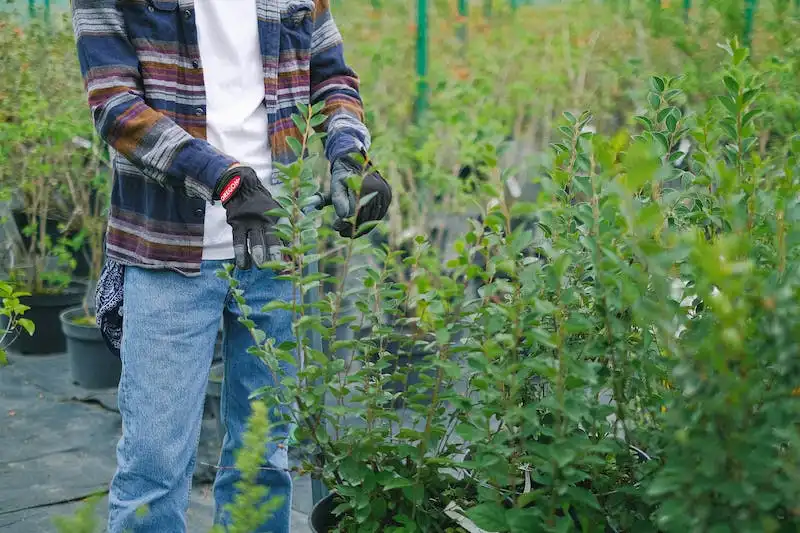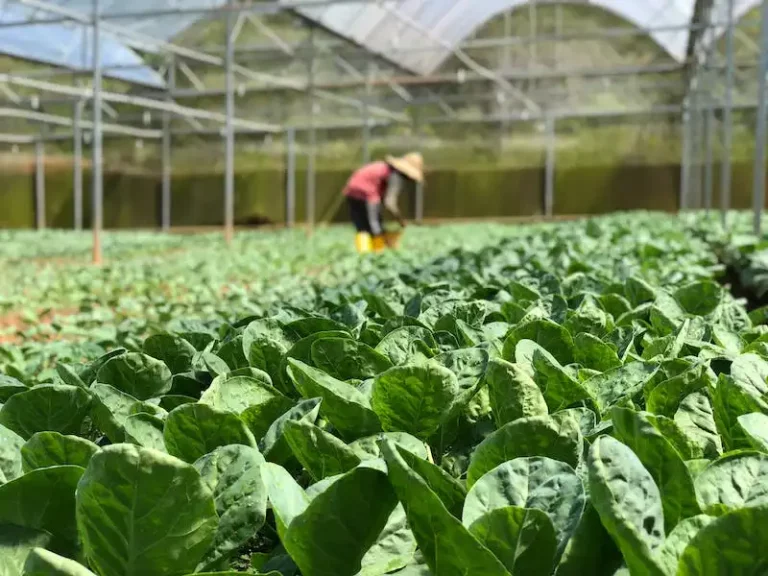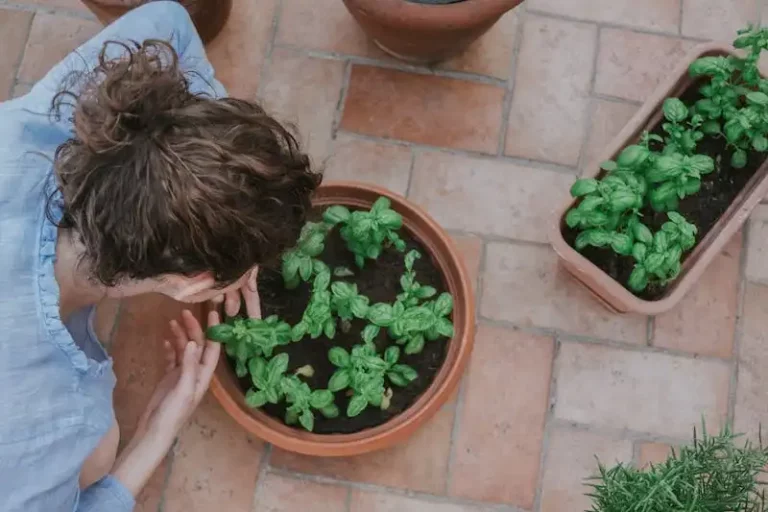Blackberries are a popular fruit that can be grown in a wide range of climates. They are known for their rich flavor and deep purple color. Planting and caring for blackberries requires a total understanding of their needs and proper management.
When it comes to planting blackberries, it is estimated that each plant can produce up to 10 pounds of fruit per year. To successfully grow blackberries, it is important to choose a sunny location with well-drained soil. Blackberries can be planted either in the ground or in a container.
To care for blackberries, it is vital to monitor the soil moisture level. Blackberries should not be overwatered, as this can lead to root rot. It is recommended to water the plants regularly, especially during dry spells. The leaves will turn yellow if the plants need more water. On the other hand, if the leaves are dark green and the soil is moist, then the plants are receiving enough water.
Fertilizing blackberries is usually done in late winter or early spring. A general-purpose fertilizer with a balanced ratio of nitrogen, phosphorus, and potassium (N-P-K) can be applied. It is important to apply the fertilizer in a wide ring around the base of the plant and gently work it into the soil. Fertilizing the plants will promote healthy growth and increase fruit production.
Blackberries are typically divided into two categories: summer-bearing and ever-bearing. Summer-bearing blackberries produce fruit on second-year canes, while ever-bearing blackberries produce fruit on both first-year and second-year canes. Pruning should be done accordingly to encourage proper fruiting. For summer-bearing blackberries, the canes that have fruited should be pruned to the ground after harvest. For ever-bearing blackberries, the canes that have fruited should be pruned to the ground in late winter or early spring.
In conclusion, blackberry planting and care require proper management to ensure a successful harvest. By following the recommended practices for planting, watering, fertilizing, and pruning, you’ll be able to enjoy a bountiful harvest of delicious blackberries for years to come.
Blackberry Questions
Are you growing blackberries? If so, you may have some questions about their care and growing conditions. In this article, we’ll answer some common blackberry questions.
1. When is the best time to plant blackberries?
Blackberries are best planted in the late fall or early spring, when the weather is cool. This gives the plants time to establish their roots before the hot summer weather arrives.
2. How much water do blackberries need?
Blackberries need regular watering, especially during dry spells. However, overwatering can be detrimental to their growth. They prefer well-drained soil, so make sure their roots don’t sit in water for extended periods.
3. Can blackberries survive frost?
Blackberries are quite hardy and can tolerate light frosts. However, if there is a deep freeze or extremely cold weather, it may damage the plants. Provide adequate protection, such as mulching, to help prevent frost damage.
4. What fertilizers do blackberries prefer?
Blackberries have specific nutrient requirements, and it’s important to know your soil’s nutrient levels. A soil test can provide you with this information. Generally, blackberries prefer fertilizers high in nitrogen, such as blood meal or fish emulsion, and a balanced fertilizer with a ratio of 10-10-10 or 14-14-14. Composting is also beneficial for their growth.
5. How much sun do blackberries need?
Blackberries require full sun to produce the best crops. They love sunlight and won’t thrive in shady areas. Plant them in a location where they will receive at least 6 to 8 hours of direct sunlight per day.
6. How should I prune blackberry plants?
Pruning blackberry plants is essential for maintaining their health and productivity. Summer-bearing blackberries should be pruned in early winter, while everbearing blackberries can be pruned in late winter or early spring. Remove old canes and thin out the newer ones to encourage better air circulation and larger berries.
7. Can I grow blackberries in containers?
Yes, you can grow blackberries in containers. Make sure the containers are large enough to accommodate the plants’ root system and provide good drainage. Use well-draining soil mix and water the plants regularly. Container-grown blackberries may require more frequent feeding and watering compared to those in the ground.
These are just a few common blackberry questions answered. If you have any other specific queries or concerns about growing blackberries, consult a local gardening expert or agricultural service for more information.
Have blackberry questions you need answered? Here we give answers to blackberry plant care questions such as weather, fertilizer, soil, pruning, composting, and more.
When it comes to growing blackberry plants, there are always questions that need answering. Whether you’re a beginner or an experienced gardener, understanding how to care for blackberry plants is essential for their success. In this article, we’ll address some of the most commonly asked questions and provide helpful answers.
Weather
Blackberry plants are well suited for various weather conditions. While they can tolerate a range of temperatures, they generally prefer areas with moderate heat. Blackberries are typically hardy in USDA zones 5-9, but specific varieties may have different zone requirements. It’s always best to check the recommended hardiness zone for your blackberry plant before purchasing or planting.
Fertilizer
Blackberries have specific nutrient requirements to thrive. When it comes to fertilizing these plants, it’s essential to provide them with a balanced fertilizer that is rich in nitrogen, phosphorus, and potassium. Apply fertilizer in early spring and again in early summer for optimal growth. Be sure to follow the instructions on the fertilizer packaging for proper application rates.
Soil
Blackberry bushes prefer well-draining soil with a pH level between 6.0 and 7.0. Before planting, test your soil’s pH level and amend it if needed. Adding organic matter, such as compost or aged manure, can help improve soil structure and fertility. Work the amendments into the soil to a depth of 8-10 inches before planting your blackberry bushes.
Pruning
Proper pruning is essential for blackberry plants to maintain their health and productivity. It’s best to prune blackberries in late winter or early spring while the plants are dormant. Remove any dead or damaged canes and thin out overcrowded canes to allow for better air circulation. Summer-bearing blackberries should be pruned after harvest, while everbearing blackberries can be pruned in early spring and again after their fall crop.
Composting
Composting is a great way to enrich your blackberry plants’ soil and promote overall plant health. You can create your compost pile using a mix of organic materials such as kitchen scraps, yard waste, and dried leaves. As the compost breaks down, it releases valuable nutrients that will benefit your blackberry plants. This organic matter also helps improve soil drainage and moisture retention.
And More
Blackberry plant care involves much more than just weather, fertilizer, soil, pruning, and composting. Other important factors to consider include watering, pest control, disease prevention, and trellising for support. Always stay informed about the specific needs of your blackberry plants to ensure they receive the best care possible.
| Question | Answer |
|---|---|
| How often do blackberry plants need watering? | Blackberry plants need regular watering, especially during dry periods. Water deeply and evenly to ensure the root zone is adequately hydrated. Avoid overwatering, as this can lead to root rot and other issues. |
| Are blackberries considered bramble plants? | Yes, blackberries are classified as bramble plants due to their thorny growth habit. |
| When is the best time to spray blackberry plants for pests? | The timing of pest control treatments may vary depending on the specific pests you’re targeting. It’s generally recommended to start spraying early in the growing season and continue at regular intervals throughout the summer. |
| How long does it take for blackberry plants to produce fruit? | The exact length of time it takes for blackberry plants to produce fruit can vary depending on the variety and growing conditions. However, most blackberry plants start producing fruit in their second or third year. |
| Can blackberry plants be grown in rows? | Yes, blackberry plants can be grown in rows. Plant them about 3-5 feet apart within the row and leave 8-10 feet between rows to allow for proper airflow and maintenance. |
| Do blackberry plants need support? | Yes, some blackberry varieties benefit from trellising or other forms of support. This helps keep the canes upright and makes harvesting easier. Consider using a trellis system or stakes to support your blackberry plants. |
As you can see, blackberry plant care involves various factors that can contribute to their success. By understanding and implementing proper care practices, you can enjoy a bountiful harvest of delicious blackberries year after year.
Blackberry Planting Care
When it comes to blackberry planting care, there are several important factors to consider. The best time to plant blackberries is in early spring or late fall, as they thrive in cooler weather. It is crucial to choose a location with well-drained soil, as blackberries do not like to be overwatered. Half-day sunlight is sufficient for blackberry plants to grow and produce berries.
Before planting, it is recommended to prune the blackberry canes to about half of their length. This will stimulate new growth and improve the overall health of the plant. Observations show that blackberries planted in rows tend to grow faster and give more berries compared to those planted in a total bramble.
When planting blackberries, make sure to dig holes large enough to accommodate the root system of the plants. It is also essential to add organic matter such as compost or well-aged manure to improve soil fertility. Fertilizing your blackberries is recommended to provide the necessary nutrients for healthy growth. An easy way to fertilize is to broadcast a balanced fertilizer or use organic alternatives.
To reduce the need for fertilizer, it is crucial to work organic matter into the soil before planting. This will help retain moisture and improve soil fertility over time. Blackberries must be watered regularly, especially during dry periods, to ensure good fruit development.
When it comes to winter care, blackberries are hardy plants but may require some attention. It is recommended to prune them in late winter to remove dead or damaged canes. Protecting the plants with straw or mulch can also provide insulation during harsh winters.
For proper blackberry management, it is advisable to check the specific requirements of the variety you are growing. Some blackberries are classified as summer-bearing, while others are ever-bearing. Understanding the differences will help you plan your pruning and harvesting schedule accordingly.
In conclusion, blackberry planting care requires attention to detail and proper management. By following the recommendations for soil preparation, fertilizing, pruning, and protecting the plants from harsh weather conditions, you can ensure healthy blackberry plants and a bountiful harvest.




